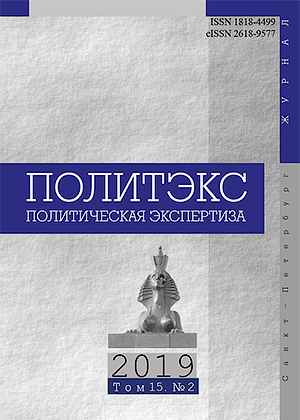Central-Eastern Europe in the European political and historical-geographical context
DOI:
https://doi.org/10.21638/11701/spbu23.2019.209Abstract
Uncertainty with a correlation of the countries and the people living in the geographical center of Europe is caused by economic, cultural, confessional, political and other signs. The countries of Central and Eastern Europe were allocated from the European context in view of their cultural and historical features. These states which were historically a part of empires after world wars were located between great powers and served as a watershed between the Western and Eastern Europe with which Soviet Russia was associated. During socialist transformations in countries of Eastern Europe industrialization of the economy was successfully carried out, social problems were substantially solved, the international conflicts are frozen. However, when weakening the political center on which the created imperious vertical kept the East European countries began to look for new support. In this situation connection with the western structures gaining dynamics, the process of rapprochement with which began to develop actively since the end of the 1980th became the only option of self-preservation for countries of Eastern Europe. After the disintegration of a socialist system, and then the Soviet Union the countries of Central and Eastern Europe were focused on the European integration structures. Nevertheless, the mental features of the people inhabiting the region of “median Europe”, created within centuries do not allow to change in root values and political perception for a short time that does not allow to influence social standards to a great extent. Despite the turn which was built for the accession to the European Union, dividing lines in Europe did not disappear that demonstrates the political nature of processes on the continent, despite the high need for cooperation for the solution of urgent European problems.
Keywords:
Central Eastern Europe, Central Europe, Eastern Europe, “Median Europe”, integration
Downloads
References
References
Downloads
Published
How to Cite
Issue
Section
License
Articles of "Political Expertise: POLITEX" are open access distributed under the terms of the License Agreement with Saint Petersburg State University, which permits to the authors unrestricted distribution and self-archiving free of charge.




